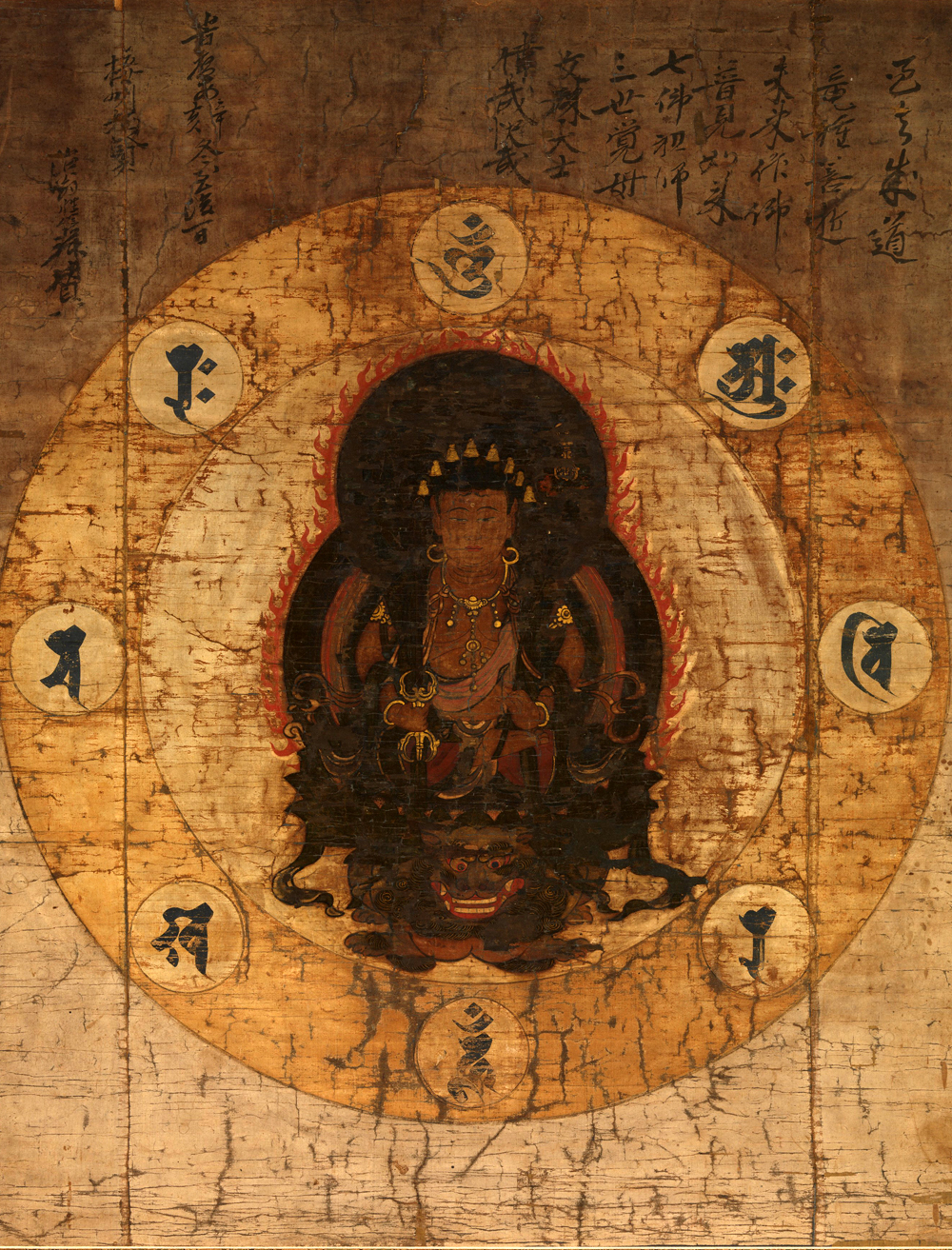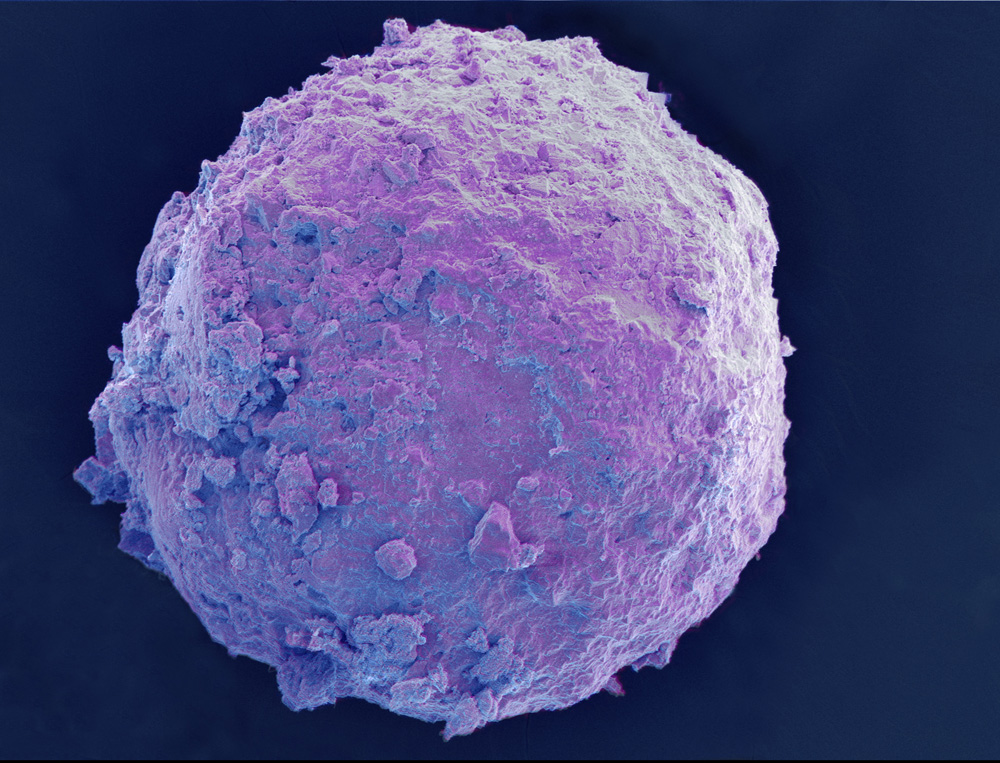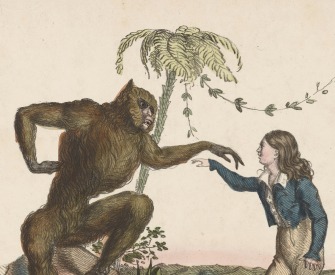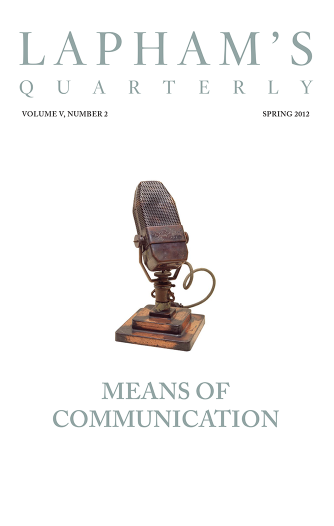We’ve got to live, no matter how many skies have fallen.
—D.H. Lawrence, 1928The Human Response
William James on an aftermath.
I realize now better than ever how inevitable were men’s earlier mythologic versions of such catastrophes, and how artificial and against the grain of our spontaneous perceiving are the later habits into which science educates us. It was simply impossible for untutored men to take earthquakes into their minds as anything but supernatural warnings or retributions.
A good instance of the way in which the tremendousness of a catastrophe may banish fear was given me by a Stanford student. He was in the fourth story of Encina Hall, an immense stone dormitory building. Awakened from sleep, he recognized what the disturbance was and sprang from the bed, but was thrown off his feet in a moment, while his books and furniture fell around him. Then, with an awful, sinister, grinding roar, everything gave way, and with chimneys, floor beams, walls and all, he descended through the three lower stories of the building into the basement. “This is my end, this is my death,” he felt, but all the while no trace of fear. The experience was too overwhelming for anything but passive surrender to it.
Arrived at the bottom, he found himself with rafters and debris around him, but not pinned in or crushed. He saw daylight and crept toward it through the obstacles. Then, realizing that he was in his nightgown, and feeling no pain anywhere, his first thought was to get back to his room and find some more presentable clothing.The stairways at Encina Hall are at the ends of the building. He made his way to one of them and went up the four flights, only to find his room no longer extant. Then he noticed pain in his feet, which had been injured, and came down the stairs with difficulty. When he talked with me ten days later he had been in hospital a week, was very thin and pale, and went on crutches, and was dressed in borrowed clothing.
So much for Stanford, where all our experiences seem to have been very similar. Nearly all our chimneys went down, some of them disintegrating from top to bottom; parlor floors were covered with bricks; plaster strewn the floors; furniture was everywhere upset and dislocated; but the wooden dwellings sprang back to their original position, and in house after house not a window stuck or a door scraped at top or bottom. Wood architecture was triumphant! Everybody was excited, but the excitement at first, at any rate, seemed to be almost joyous. Here at last was a real earthquake after so many years of harmless waggle! Above all, there was an irresistible desire to talk about it and exchange experiences.
Most people slept outdoors for several subsequent nights, partly to be safer in case of a recurrence, but also to work off their emotion and get the full unusualness out of the experience. The vocal babble of early-waking girls and boys from the gardens of the campus, mingling with the birds’ songs and the exquisite weather, was for three or four days a delightful sunrise phenomenon.

Monju Bosatsu, bodhisattva of wisdom, surrounded by eight sacred utterances, Kyoto, Japan, mid-to-late fourteenth century. © Metropolitan Museum of Art, Rogers Fund, 1912.
Now turn to San Francisco, thirty-five miles distant, from which an automobile ere long brought us the dire news of a city in ruins, with fires beginning at various points, and the water supply interrupted. I was fortunate enough to board the only train of cars—a very small one—that got up to the city; fortunate enough also to escape in the evening by the only train that left it. This gave me and my valiant feminine escort some four hours of observation. My business is with “subjective” phenomena exclusively, so I will say nothing of the material ruin that greeted us on every hand—the daily papers and the weekly journals have done full justice to that topic. By midday, when we reached the city, the pall of smoke was vast and the dynamite detonations had begun, but the troops, the police, and the firemen seemed to have established order, dangerous neighborhoods were roped off everywhere and picketed, saloons closed, vehicles impressed, and everyone at work who could work.
It was indeed a strange sight to see an entire population in the streets, busy as ants in an uncovered anthill scurrying to save their eggs and larvae. Every horse and everything on wheels in the city, from hucksters’ wagons to automobiles, was being loaded with what effects could be scraped together from houses which the advancing flames were threatening. The sidewalks were covered with well-dressed men and women carrying baskets, bundles, valises, or dragging trunks to spots of greater temporary safety, soon to be dragged farther, as the fire kept spreading!
In the safer quarters, every doorstep was covered with the dwelling’s tenants, sitting surrounded with their more indispensable chattels, and ready to flee at a minute’s notice. I think everyone must have fasted on that day, for I saw no one eating. There was no appearance of general dismay, and little of chatter or of incoordinated excitement.
Everyone seemed doggedly bent on achieving the job which he had set himself to perform; and the faces, although somewhat tense and set and grave, were inexpressive of emotion. I noticed only three persons overcome, two Italian women, very poor, embracing an aged fellow countrywoman, and all weeping. Physical fatigue and seriousness were the only inner states that one could read on countenances.
With lights forbidden in the houses and the streets lit only by the conflagration, it was apprehended that the criminals of San Francisco would hold high carnival on the ensuing night. But whether they feared the disciplinary methods of the United States troops, who were visible everywhere, or whether they were themselves solemnized by the immensity of the disaster, they lay low and did not “manifest,” either then or subsequently.
The only very discreditable thing to human nature that occurred was later, when hundreds of lazy “bummers” found that they could keep camping in the parks, and make alimentary storage-batteries of their stomachs, even in some cases getting enough of the free rations in their huts or tents to last them well into the summer. This charm of pauperized vagabondage seems all along to have been Satan’s most serious bait to human nature. There was theft from the outset, but confined, I believe, to petty pilfering.
Cash in hand was the only money, and millionaires and their families were no better off in this respect than anyone. Whoever got a vehicle could have the use of it, but the richest often went without and spent the first two nights on rugs on the bare ground, with nothing but what their own arms had rescued. Fortunately, those nights were dry and comparatively warm, and Californians are accustomed to camping conditions in the summer, so suffering from exposure was less great than it would have been elsewhere. By the fourth night, which was rainy, tents and huts had brought most campers under cover.
I went through the city again eight days later. The fire was out and about a quarter of the area stood unconsumed. Intact skyscrapers dominated the smoking level majestically and superbly—they and a few walls that had survived the overthrow. Thus has the courage of our architects and builders received triumphant vindication!
Two things in retrospect strike me especially, and are the most emphatic of all my impressions. Both are reassuring as to human nature.
The first of these was the rapidity of the improvisation of order out of chaos. It is clear that just as in every thousand human beings there will be statistically so many artists, so many athletes, so many thinkers, and so many potentially good soldiers, so there will be so many potential organizers in times of emergency. In point of fact, not only in the great city but in the outlying towns, these natural order-makers, whether amateurs or officials, came to the front immediately. There seemed to be no possibility which there was not someone there to think of, or which within twenty-four hours was not in some way provided for.
The completeness of organization at Palo Alto, a town of ten thousand inhabitants close to Stanford University, was almost comical. People feared exodus on a large scale of the rowdy elements of San Francisco. In point of fact, very few refugees came to Palo Alto. But within twenty-four hours rations, clothing, hospital, quarantine, disinfection, washing, police, military, quarters in camp and in houses, printed information, employment, all were provided for under the care of so many volunteer committees.
Much of this readiness was American, much of it Californian; but I believe that every country in a similar crisis would have displayed it in a way to astonish the spectators. Like soldiering, it lies always latent in human nature.

Meteorite from the K-T extinction event, SEM micrograph by Edward Kinsman. © Edward Kinsman / Science Source / Getty Images.
The second thing that struck me was the universal equanimity. We soon got letters from the East, ringing with anxiety and pathos; but I now know fully what I have always believed, that the pathetic way of feeling great disasters belongs rather to the point of view of people at a distance than to the immediate victims. I heard not a single really pathetic or sentimental word in California expressed by anyone.
The terms awful, dreadful fell often enough from people’s lips, but always with a sort of abstract meaning, and with a face that seemed to admire the vastness of the catastrophe as much as it bewailed its cuttingness. When talk was not directly practical, I might almost say that it expressed (at any rate in the nine days I was there) a tendency more toward nervous excitement than toward grief. The hearts concealed private bitterness enough, no doubt, but the tongues disdained to dwell on the misfortunes of self, when almost everybody one spoke to had suffered equally.
Surely the cutting edge of all our usual misfortunes comes from their character of loneliness. We lose our health, our wife or children die, our house burns down, or our money is made way with, and the world goes on rejoicing, leaving us on one side and counting us out from all its business. In California everyone to some degree was suffering, and one’s private miseries were merged in the vast general sum of privation and in the all-absorbing practical problem of general recuperation. The cheerfulness, or, at any rate, the steadfastness of tone, was universal. Not a single whine or plaintive word did I hear from the hundred losers whom I spoke to. Instead of that there was a temper of helpfulness beyond the counting.
It is easy to glorify this as something characteristically American, or especially Californian. Californian education has, of course, made the thought of all possible recuperations easy. In an exhausted country, with no marginal resources, the outlook on the future would be much darker. But I like to think that what I write of is a normal and universal trait of human nature. In our drawing rooms and offices we wonder how people ever do go through battles, sieges, and shipwrecks. We quiver and sicken in imagination, and think those heroes superhuman. Physical pain, whether suffered alone or in company, is always more or less unnerving and intolerable. But mental pathos and anguish, I fancy, are usually effects of distance. At the place of action, where all are concerned together, healthy animal insensibility and heartiness take their place.

William James
From “On Some Mental Effects of the Earthquake.” Psychologist and philosopher William James was teaching at Stanford for a semester when the 1906 San Francisco earthquake occurred. He lectured on the Lisbon earthquake and the eruptions of Mount Pelée, arguing that such disasters incite humans to extraordinary behavior. To his brother Henry, who back east had expressed some squeamishness, he wrote, “All the earthquake anguish has been yours. Taking it so lightly ourselves, how could we suppose that you would take it so hard?”


